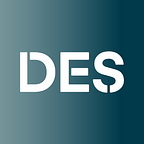Gearing up for Diversity, Equity, and Inclusion Foundational Training
“You can mandate diversity, but you can’t mandate inclusion. Inclusion is about behavior, [and] relationships. You have to change hearts and minds.”
— Esi Minta-Jacobs
Wow! Powerful quote. What a privilege to be part of People Development at Employment Security Department (ESD), where our 2021–22 agency goal is cultivating a diverse, equitable, and inclusive culture. Our team, along with Employee Resource Group (ERG) members, is deep in collaboration, designing introductory trainings and materials to prepare our workforce for Washington state’s Diversity, Equity, and Inclusion (DEI) foundational training.
As with everything in life, DEI work is a journey. We must start with awareness and knowledge before we can explore what actions we will take to honor our differences and affect changes in our organizations and social systems.
Ultimately, we are striving for an inclusive workplace where:
- Every employee feels free to bring their authentic selves to work
- Every employee feels safe
- Every employee feels valued
What does this require?
- Courage
- Open-mindedness
- A willingness to see past our own experiences and assumptions
How do we accomplish this?
- Curiosity
- Listening
- Empathy
- Action
Cultivating an inclusive workplace also takes commitment, training, and resources.
Enter the ESD training team where we asked: How will we develop awareness and knowledge around equity and prepare our employees for the foundational training to come?
We opted for a Blended Learning Training Model:
- Part 1 is knowledge transfer — an interactive, self-paced eLearning session where learners make sense of DEI vocabulary words and engage with new concepts.
- Part 2 is a virtual Instructor-led Training (ILT) — learners apply the new DEI concepts and partake in discussions with colleagues.
What content did we decide to include in this equity training? You are getting this sneak peek, so shh! We decided to focus on four main concepts.
- Implicit bias and identifying where biases exist in the workplace and how to mitigate them.
- Understanding isms and how they contribute to discrimination and exclusion; this includes microaggressions. Within the eLearning we will have “a day in the life” scenarios with the sole purpose of building empathy for and understanding the impact isms have on people. Each scenario will address a different ism (ageism, ableism, sexism, heterosexism, and racism). Some will depict how an individual with multiple marginalized identities experiences compounded oppression (intersectionality).
- Gain an understanding of how isms interact with social institutions and how inequities are created by isms within our institutions and society at large.
- Reflect on and identify inequities at our agency and determine ways to address the inequities with equitable solutions.
Do you know Dr. Caprice Hollins? She is a clinical psychologist, professor, author, and speaker committed to equity and social justice, and she is co-founder of Cultures Connecting. Dr. Hollins facilitated a series of DEI trainings and Train the Trainer sessions for ESD’s HR department. She discussed how we must create norms around having courageous conversations if we are to advance equity and inclusion.
Norms for courageous conversations:
- Experience discomfort
- Stay engaged
- Listen for understanding
- Ask questions
- No fixing
- Be curious
- Speak your truth
- Take risks
- Expect and accept non-closure
Our intent with the ILT session of our DEI training is to establish these norms while discussing isms, race, and inequities. The more we connect and embrace discomfort, the better we will engage in the foundational DEI training. A workbook with space for self-reflections and learner activities will also accompany the training.
We gathered information from many resources, some of the main sources include:
- Diversity, Equity and Inclusion Glossary from OFM
- Materials from Dr. Hollins
- TED Talks by Kimberlé Crenshaw and Chimamanda Ngozi Adichie
- Infographic on institutional racism from University of North Carolina
- Materials from the DEI Certification through University of South Florida
On a personal note, I feel a great sense of responsibility to use my skills and position of privilege to drive tangible culture change toward equity, diversity, and inclusion in the workplace. Developing this training is one aspect. I believe empathy is key to building the connections we need to move forward together, so I leave you with this quote:
“The highest form of knowledge is empathy, for it requires us to suspend our egos and live in another’s world.”
— Plato
Heather Bowhay is a Senior HR Training Consultant with Employment Security Department. As part of the People Development Team, she designs and facilitates trainings and offers consultation/collaboration services to all divisions of ESD with the goal of enriching learning and supporting professional development.
